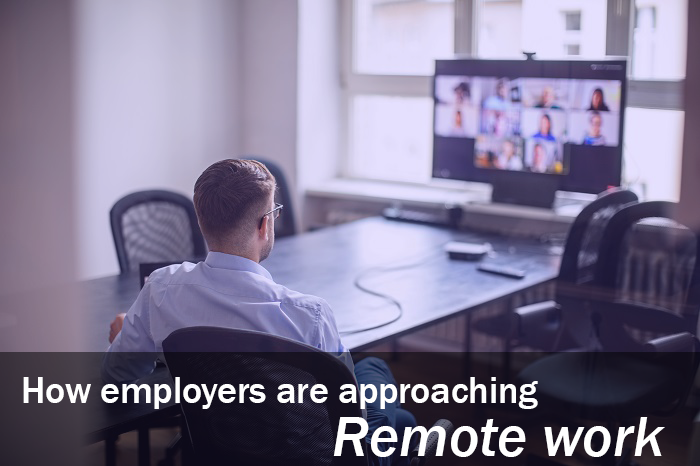More employers are keeping their workers remote until at least early next year in the midst of the coronavirus pandemic.
Apple, Facebook, Insider/Business Insider and Uber are among the employers that recently announced workers will not have to return to the office until next year, joining a growing number of companies that are extending their remote work plans for the foreseeable future.
Related: What Google’s decision to stay remote could mean to other employers
Apple CEO Tim Cook told Bloomberg the company’s employees can continue working from home until early 2021. San Francisco-based Uber announced that its corporate employees are free to continue working remotely through June 30, 2021, though they can opt to go to work if their local offices reopen. Facebook said it will allow its employees to work from home until July 2021 and expects up to 50% of its workforce to work from home indefinitely. And Insider and Business Insider also said its staff is not required to return to the office until July 2021.
Those announcements follow Google’s recent decision to keep its employees remote until at least July 2021. The tech company’s move will affect nearly all of the roughly 200,000 full-time and contract employees across Google parent Alphabet Inc.
Although some employers have begun bringing workers back into offices after largely moving employees remote because of COVID-19, others have embraced remote work options longer than expected, spurred by rising coronavirus numbers and employees’ hesitation and concerns over returning to physical workspaces. A recent survey of 2,000 employees from Qualtrics, for instance, found that 61% are uncomfortable returning to the workplace.
Jay Jamrog, futurist and co-founder of research firm i4cp, the Institute for Corporate Productivity, says any employer decision to continue to embrace remote work options as the pandemic continues is a smart decision. “It’s about being empathetic and having compassion for what employees are going through and how they’re feeling,” he says. “There are a lot of employees who don’t feel safe; they don’t want to go to work and catch the [virus] or bring it home to their families. The wellbeing of employees is huge, and it’s the right thing to do.”
Jamrog adds that a number of employers have seen success in remote work in the last several months and advises that organizations shouldn’t rush to bring employees back if they can do their work remotely.
Related: HR leaders plan to embrace remote work post-pandemic
Meanwhile, Jay Choi, executive vice president of EmployeeXM, Qualtrics, says it’s critical for employers and HR leaders to “consistently engage with their workforce to see how they are doing and what they need and adjust protocols that balance employee safety with employee trust. This is an ever-evolving situation, and adaptability based on continual understanding of employee sentiment is key to organizations thriving in the new ways we work.”



